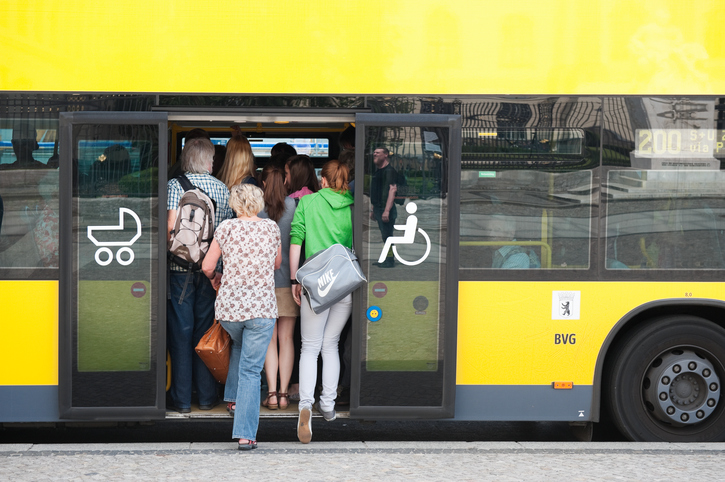The German government is considering plans to make public transport free in cities suffering from air quality problems, according to a letter seen by Reuters, which also outlines more conventional measures such as low emissions zones.
The letter, sent to EU Environment Commissioner Karmenu Vella, was signed by German Environment Minister Barbara Hendricks, Agriculture Minister Christian Schmidt and chancellery chief Peter Altmaier.
Germany has been under pressure from the European Commission, which in January promised to get tough on air quality and threatened to penalize members that breached EU rules on pollutants such as nitrogen oxide and particulate matter.
German authorities face legal action because of air quality problems in cities.
In the letter, the authors proposed low emission zones, free public transport to reduce car use, extra incentives for electric cars and technical retrofitting for existing vehicles as long as this is effective and economically feasible.
They said they would test these measures out in five cities – Bonn, Essen, Herrenberg, Reutlingen and Mannheim – before rolling out the most successful measures to all other cities affected.
The authors said they had agreed these measures with Germany’s federal states and municipalities, but Helmut Dedy, the head of the Council of German Cities, said he was surprised by the proposal.
There had been plans for lowering ticket prices in some cities, he said, adding that the federal government would have to finance public transport if it wanted to make it free.
Most local public transport in Germany is owned by municipalities.
Reactions
Environment ministry spokesman Stefan Gabriel Haufe said yesterday these measures were not aimed at easing the burden on auto makers, who must pay for emissions-cutting modifications to diesel vehicles already on the roads.
“In the long run, you can’t reduce excess emissions levels in cities unless you cut nitrogen emissions from diesel engines,” he told a regular news conference. “We have seen speculations that we would like to reduce the burden on the car industry. That is absolutely not the case.”







